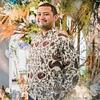Take a photo of a barcode or cover
emotional
informative
inspiring
reflective
medium-paced
Never have read non-fiction, but I think this was one of the best books I could have started with. It’s very inspiring and I learned a lot. I will probably come back to this one in a few years
informative
reflective
slow-paced
informative
reflective
medium-paced
Although I appreciate some people love the flowery language of these books (I guess that’s kind of Alain de Botton’s whole schtick), I found this one very inaccessible. I felt the content was lost a lot of the time and I ended up cringing due to the sheer number of words. To the point that it became a lil icky. Okay, a lot icky. Gatekeep-y vibes.
dacă erai în căutarea de motive pentru a nu te căsători (deghizate în motive pentru care se presupune că viața în doi e super) asta e cartea potrivită pentru tine
The School of Life (such a lofty title) is a project coming from Alain de Botton's concern related to the lack of, so-called, proper "emotional education" for sapiens.
He found it puzzling how humankind advances a lot on technologies, civilizations, & ability to satisfy its wants (& needs, arguably), yet not really evolve much mentally & emotionally. Such a contrast between technological & psychological advancement, in which so many adults with high intelligence for things technical & discipline-specific are childish & failing in so many aspects of self-and-others' relationships.
This book is a compilation of The School of Life's contributions on how to live well & flourish with a combination of philosophical & psychological, & Classical cultural insights.
This book tries to tackle such interesting issues. However, just as the project falls short of offering much help & insights, this book also only offer glimpses of ideas about how to tackle issues related to self, others, platonic & spousal relationships, work, & culture.
I appreciate its reminder of balance between Romanticism and Classical insights, passion & mind, emotional & cognitive, & to be slow in anger & judgment. However, the insistence to advocate Classical education & culture, stemming from Ancient Greco-Roman, Enlightenment, & Industrial era, shows how much this book's perspective comes from Western, white privileged mindset, with the reliance on post-religious approach to tackle human's deepest emotional needs.
The solutions offered were mainly related to change of mindset, paying attention to cultural works such as paintings, literatures, and/or music, without giving attention to social construct & local contexts shaping our diversified culture. Western supremacy seems still held dear by its writers.
This book is a good gateway for self-help in combination with philosophical (albeit simplified & watered down) insights. Some of the topics might be dug deeper by our own (due to lack of references). Therefore, a good eye-opener but not much else.
He found it puzzling how humankind advances a lot on technologies, civilizations, & ability to satisfy its wants (& needs, arguably), yet not really evolve much mentally & emotionally. Such a contrast between technological & psychological advancement, in which so many adults with high intelligence for things technical & discipline-specific are childish & failing in so many aspects of self-and-others' relationships.
This book is a compilation of The School of Life's contributions on how to live well & flourish with a combination of philosophical & psychological, & Classical cultural insights.
This book tries to tackle such interesting issues. However, just as the project falls short of offering much help & insights, this book also only offer glimpses of ideas about how to tackle issues related to self, others, platonic & spousal relationships, work, & culture.
I appreciate its reminder of balance between Romanticism and Classical insights, passion & mind, emotional & cognitive, & to be slow in anger & judgment. However, the insistence to advocate Classical education & culture, stemming from Ancient Greco-Roman, Enlightenment, & Industrial era, shows how much this book's perspective comes from Western, white privileged mindset, with the reliance on post-religious approach to tackle human's deepest emotional needs.
The solutions offered were mainly related to change of mindset, paying attention to cultural works such as paintings, literatures, and/or music, without giving attention to social construct & local contexts shaping our diversified culture. Western supremacy seems still held dear by its writers.
This book is a good gateway for self-help in combination with philosophical (albeit simplified & watered down) insights. Some of the topics might be dug deeper by our own (due to lack of references). Therefore, a good eye-opener but not much else.
This contained some really interesting insights that we barely look at or engage in during our daily lives.
emotional
hopeful
informative
inspiring
reflective
medium-paced
There were some real bangers in this book but it dragged a little bit towards the end.
Favourite chapter was "In Praise Of Melancholy" <3
Favourite chapter was "In Praise Of Melancholy" <3
Had some interesting thoughts on life, love, and self-awareness. My favorite thought is, "Irritability is anger that lacks self-knowledge."



